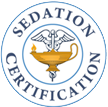In Appleton, we are using oral midaz as well. The patient population consists of pediatrics-mostly undergoing ENT procedures. Doses are usually 0.3 mg/kg. We pre-op our ped patients just outside of the "regular" pre-op area to give these little ones some privacy with their parents. These rooms consist of a TV and of course a call light. Mom and dad are instructed to keep the child in the bed, or in their arms, as they are prone to falls after being medicated. No monitors are applied (other than for pre-op vitals)- and a nurse rotates through to assess the results of the Versed.
Pre-op over sedation is a big concern (especially with adenotonsillar hypertrophy) – but this has never been an issue with the doses we are using. With parental presence, and our nurses checking at regular intervals- the kids do quite well. There is no doubt that some patients (post-op) are slower to fully recover from anesthesia than others- and I remind the nurses that children are no different from adults in this respect. I believe that adjuncts like Tylenol suppos. help in reducing narcotic need (and kids get back to mom and dad quicker). Allowing the child to breathe spontaneously during the case while titrating narcs has also decreased my surgery end to pacu times (and patient is quite comfy). This is what seems to work for us- if you have any questions, feel free to email me and I'd be happy to chat with you further about our pre-op sedation. use .3-.5 mg/kg for the active kid and or when a parent requests "something", the dose depending on how active and personality type but not on everybody. You shouldn’t see "over sedation" using these doses. It's also my experience that some SDS nurses, PACU nurses and surgical floor nurses will from time to time complain about something based not so much on good care but how they perceive it affects them.
